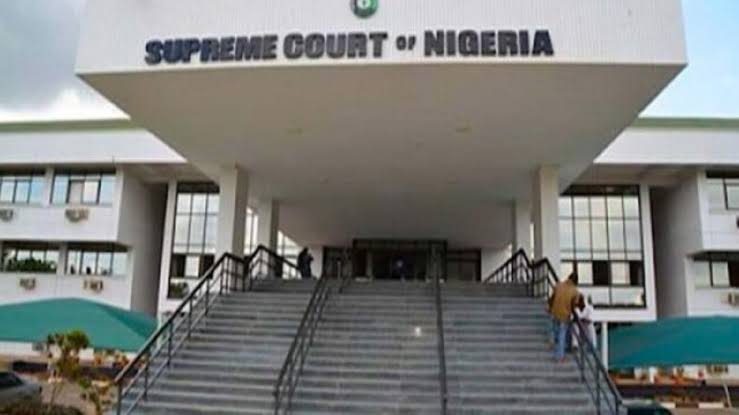Supreme Court Dismisses Suit Challenging Establishment Of EFCC
The Supreme Court has dismissed the lawsuit filed by sixteen states of the federation against the Attorney-General of the Federation.
This legal action challenged the constitutionality of the statutes that established the Economic and Financial Crimes Commission (EFCC) as well as two additional anti-corruption agencies.
The other agencies are the Independent Corrupt Practices and Other Related Offences Commission (ICPC) and the Nigerian Financial Intelligence Unit (NFIU).
The apex court, in a judgment delivered by Justice Uwani Aba-Aji, held that the Acts establishing the anti-corruption agencies were lawfully made by the National Assembly which is constitutionally empowered to make laws for the entire country.
The seven-member panel held that the laws made by the National Assembly are binding on all the federating units as well as their agencies.
The apex court held that although the Act establishing the anti-corruption agencies was an offshoot of the United Nations convention, they are nonetheless lawful, legal and binding, having been enacted by the National Assembly.
According to the apex court, laws passed by the National Assembly do not need any ratification by the states of the federation.
Justice Aba-Aji berated the plaintiffs for filing the suit, noting that their action revealed their desire to shield themselves from investigation and prosecution over corruption allegations, adding that: “If we do not kill corruption, corruption will kill us.”
While taking cognizance of the fact that some states of the federation have established their anti-corruption agencies, the apex court held that any state’s law that runs contrary to the laws made by the National Assembly is unlawful, illegal and unconstitutional to the extent of the inconsistency.
The apex court subsequently dismissed the suit for lacking in merit.
However, the panel initially dismissed the Federal Government’s objection to the suit because the matter of the legality of the anti-graft agencies’ Acts is coming to the apex court for the first time.
The Attorney-General of Kogi State has initiated legal proceedings against the Federal Government, challenging the constitutionality of the Acts governing the Economic and Financial Crimes Commission (EFCC), the Independent Corrupt Practices and Other Related Offences Commission (ICPC), and the Nigeria Financial Intelligence Unit (NFIU).
The basis for this challenge is the assertion that these Acts were not ratified by the respective state houses of assembly, given their origins as an extension of the United Nations convention.
However, the plaintiff argued that the move by the agencies which limited cash withdrawal of state and local governments from their accounts to N5 million, was an attempt to control and influence their spending.
The states that initiated the suit include Ondo, Edo, Oyo, Ogun, Nassarawa, Kebbi, Katsina, Sokoto, Jigawa, Enugu, Benue, Anambra, Plateau, Cross-River and Niger.
Lantana Nasir


Comments are closed.